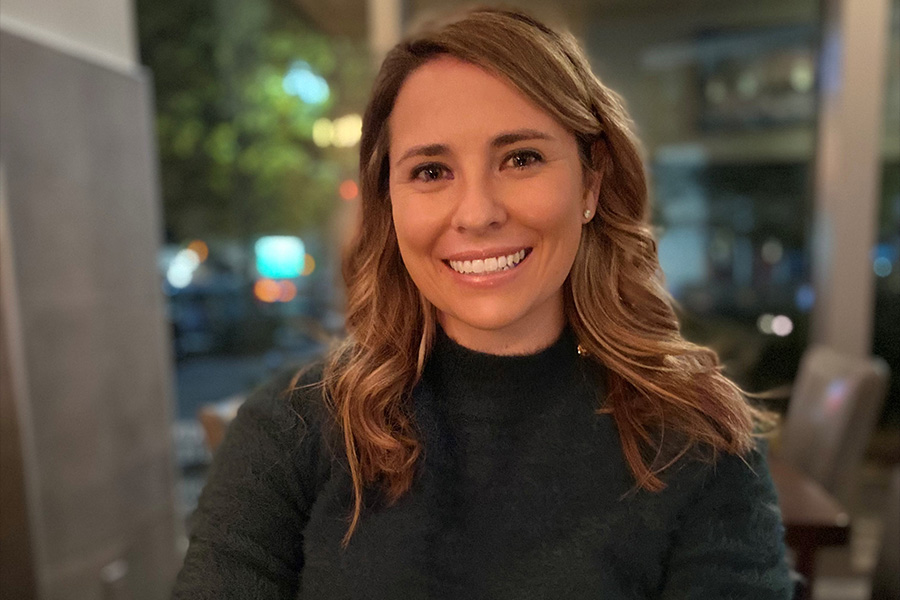Purdue University adjunct Julia Filiberti Allen promoted to Vice President and CTO at Saab Inc.

Julia Filiberti Allen, formerly chief scientist at the U.S. subsidiary of Swedish defense contractor Saab, has been promoted to vice president and chief technology officer at Saab Inc. Allen was recently appointed to an adjunct position in the Elmore Family School of Electrical and Computer Engineering.
In her new role, Allen will oversee the development of technical strategy for Saab Inc., lead research community engagement efforts, and prioritize and meet research and development objectives with a focus on launching AI, machine learning, and autonomous systems.
“I am honored to bring my autonomy & artificial intelligence experience from the defense industry, academia, and government service into the CTO role focused on research & development, strategy, and academic community engagement,” Allen said in a post on her LinkedIn profile.
As chief scientist at Saab Inc., Allen co-founded the autonomous and undersea systems division and helped capture cooperative research and development initiatives with the Defense Advanced Research Projects Agency (DARPA) and the Office of Naval Research (ONR). She also led two successful proposals with groups of faculty from Purdue’s Institute for Control, Optimization and Networks (ICON), which includes many from Purdue ECE.
The first proposal was for TSUNOMI (funded by the ONR). The goal of this project is to create third-wave AI techniques and sensor resource management algorithms for automatic target recognition. A typical application would involve deploying a suite of sensors to monitor a given region (such as an airport) for intrusions by foreign objects (such as drones). The project will create algorithms to enable the sensors to blend their individual measurements and assessments to quickly identify the entering object and characterize its intent. The ECE faculty on this project are Shreyas Sundaram, Marie Gordon Professor of ECE, Christopher Brinton, Elmore Assistant Professor of ECE, David Inouye, Assistant Professor of ECE, and Michael Zoltowski, Thomas J. and Wendy Engibous Professor of ECE. Faculty from other areas include Shaoshuai Mou and James Goppert, both from the School of Aeronautics and Astronautics (AAE), and Song Zhang from the School of Mechanical Engineering (ME).
The second proposal was for ReflexAI (funded by DARPA). This project seeks to create new algorithms that enable systems (e.g., robots, vehicles, etc.) to rapidly adapt to changes in their dynamics in order to reconstitute control. For example, suppose that one of the propellers on a boat breaks or gets seaweed tangled in it. The algorithms created by the project would allow the onboard controller to quickly identify that the dynamics have changed, learn the new dynamics for the vehicle, and autonomously create a new control strategy for itself. The faculty on this project are Shreyas Sundaram (ECE), Nina Mahmoudian from the School of Mechanical Engineering (ME), and Shaoshuai Mou and Inseok Hwang from AAE.
